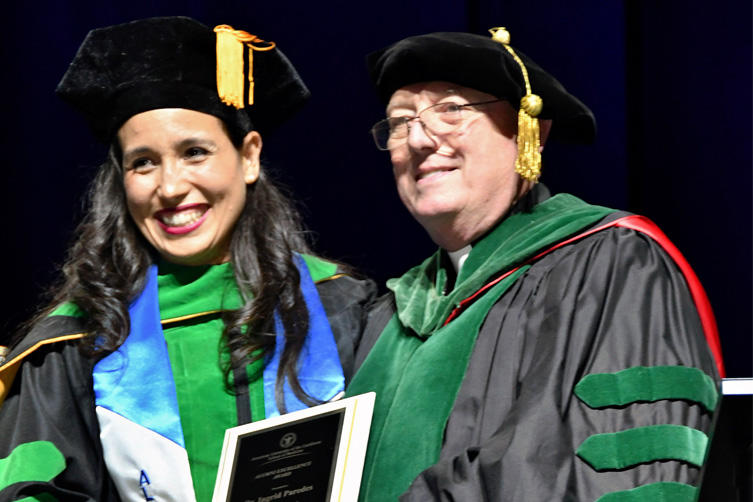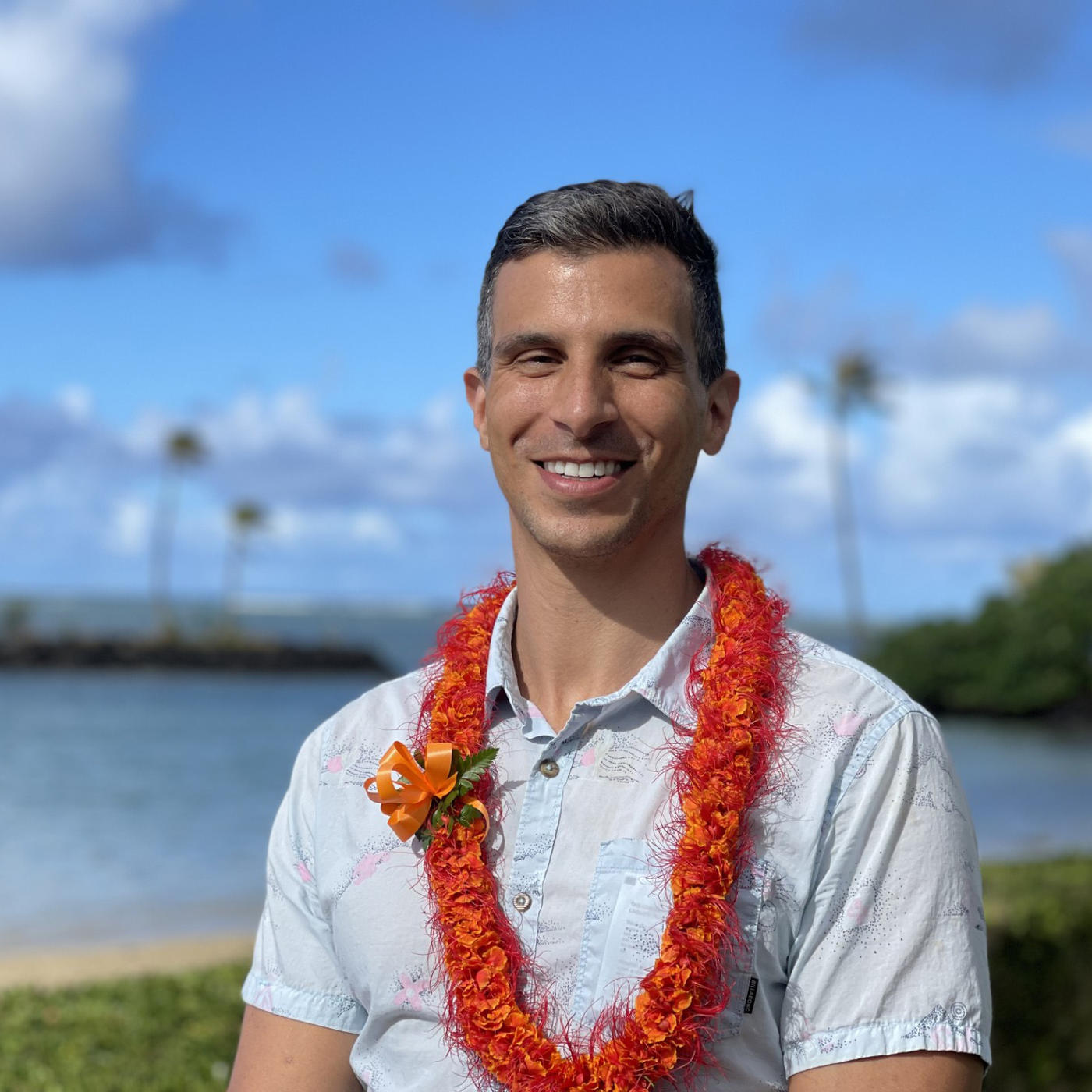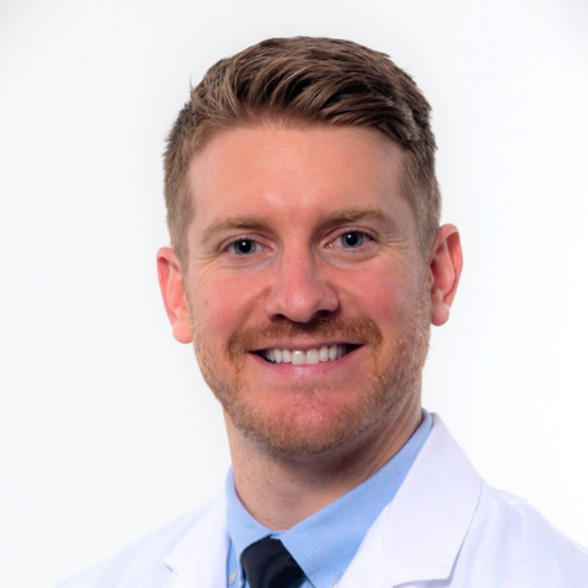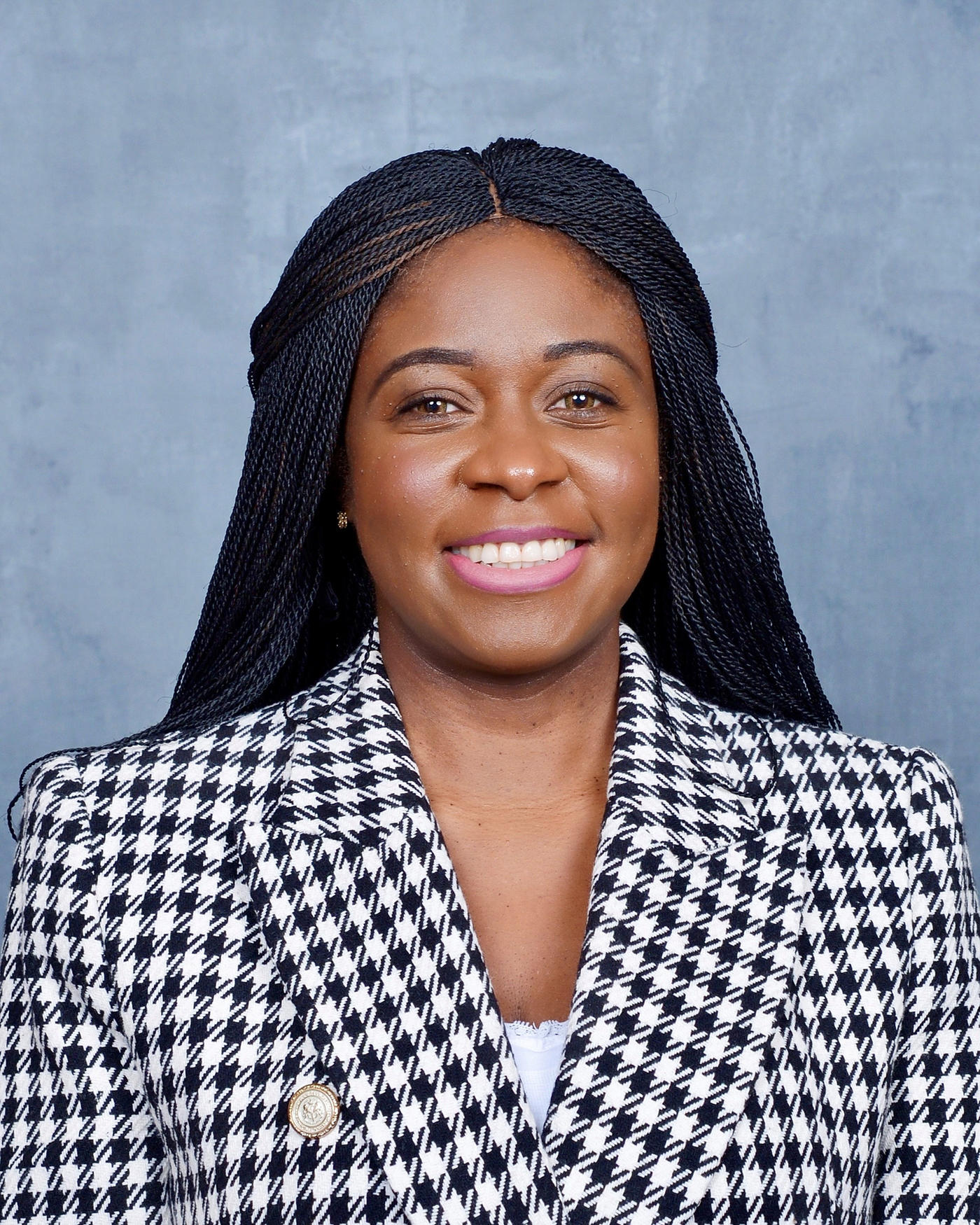Conversations on women’s health are always relevant, particularly when it comes to ovarian cancer and polycystic ovary syndrome (PCOS). For help on these subjects — and to learn a bit more about an AUC alumna — we turned to Dr. Ingrid Paredes, an obstetrics and gynecology (OB-GYN) specialist at FemCare OB-GYN in Miami. Dr. Paredes, a board-certified Fellow of the American Congress of Obstetricians and Gynecologists (FACOG), earned a Women’s Choice Award Best Doctors designation in 2023, a demonstration of her strong commitment to patients. She has also received AUC’s Alumni Excellence Award in recognition of her dedication and commitment to community service. Dr. Paredes served as the keynote speaker at AUC’s annual White Coat Ceremony on September 4, 2023.
Q: Let’s get right to it: What is ovarian cancer?
A: Ovarian cancer includes diseases that originate in the ovaries or in the related areas of the fallopian tubes and the peritoneum. It is a devastating condition which, unfortunately, has no screening modality and usually, when diagnosed, is in its later stages and patients often die shortly thereafter. However, blood tests can be done when a suspicious ovarian cyst is found during an ultrasound exam, for example. If there is a family history of ovarian or gynecological malignancies, it is vitally important to tell your doctor because there are genetic tests that screen for causes of ovarian cancer. Treatment options include chemotherapy, radiation, immunotherapy, hormone therapy, and surgery as well as integrative care strategies to help manage such side effects as fatigue, nausea, and neuropathy.
Q. What is polycystic ovary syndrome (PCOS)?
A: PCOS is an endocrine disorder that affects about 1 in 10 women and is the leading cause of female infertility. PCOS can lead to lifelong complications and such serious conditions as anxiety, depression, endometrial cancer, obesity, Type 2 diabetes, and liver or cardiovascular disease. The disorder is characterized by hyperandrogenism (too much testosterone, the male hormone that causes acne and hirsutism); irregular periods causing amenorrhea, or lack of periods, for more than one month and then causing heavy bleeding when the patient gets her period; and, often, multiple cysts on the patient’s ovaries. PCOS is usually clinically diagnosed, meaning it can be found while doing a history and physical exam. Common signs and symptoms of PCOS are irregular periods, hirsutism, acne, male pattern baldness, difficulty losing weight despite a good diet and exercise, darkening of the neck skin (acanthosis nigricans), blood work abnormalities involving elevated LH:FSH ratio and testosterone, and possible elevated HbA1c due to possible insulin resistance. PCOS treatment includes eating better, exercising more, oral contraceptive pills, metformin, inositol, and other supplements.
Q: What drew you to your specialty (OB-GYN)?
A: What ultimately drew me to my specialty was the way my rotations were organized. I first did internal medicine, which I loved, then I fell in love with surgery. My OB-GYN rotation included both of those, so it was love at first sight. OB-GYN has it all. My passion for kids also made me consider pediatrics, but what better way to be involved with kids than to deliver them [obstetrics]! I loved psychology in college, and there’s definitely a lot of psychology that can be applied in a specialty that involves women’s hormones. Teaching has also been a passion all my life, and through OB-GYN I can teach women about their anatomy and all the physiological and anatomic changes that occur over the course of their lives, particularly during adolescence, motherhood, and menopause.
Q: What do you find most rewarding about your specialty?
A: My specialty is twofold, so I’ll break it down that way. In obstetrics, the most rewarding feeling is being able to deliver a baby uneventfully (healthy and without complications), especially when I have delivered multiple babies for the same family. In gynecology, my greatest satisfaction comes from helping a mother become pregnant after suffering from infertility. Or perhaps from removing the uterus robotically after a woman has suffered from heavy periods and anemia, and being able to send the patient home the same day because it was done in a minimally invasive way.
Q: In what professional activities do you participate?
A: I am involved with AUC as part of the Alumni Association. I serve as clinical preceptor for PA [physician assistant] students in my practice. I go to national OB-GYN conferences and participate in OB-GYN chronicles with current AUC students. I do webinars for medical schools, Florida International University, and Baptist Hospital employees, and I also appear on Spanish-language television (Telemundo) to help educate the public on OB-GYN topics.
Q: What do you like best about your work?
A: What I like best about my work is the diversity of my profession! My day can go from the adrenaline rush of running to deliver a baby — either vaginally or by doing an emergency C-section — to the calm of office visits and annual exams. It’s a pleasure to see how my patients change over the course of a year, chatting with them about their lives and helping them plan for pregnancy or menopause or more difficult topics. I take pride in providing such care and helping improve my patients’ quality of life.
Q: What advice would you like to share with women regarding their gynecological health?
A: My advice is to find a good gynecologist with whom you feel comfortable and can ask about any concerns. I encourage women to advocate for their health and stay up to date with their screening tests (pap smear, mammogram, and colonoscopy as well as lab work). I encourage all patients to speak up if they are concerned about something. For example, heavy periods may run in the family, but that doesn’t necessarily mean they are normal. Heavy periods can signify fibroids, polyps, or other conditions. Always consult with your gynecologist first. I have patients who think it is normal to have incontinence after menopause because they have had vaginal deliveries. Note: It is not normal.
Q: What is your hope for the future and for your specialty?
A: For me, I see myself teaching in the academic setting down the road. For OB-GYNs, I hope we get better at diagnosing and treating ovarian cancer. I would also like to see better and more affordable fertility treatments as well as a reduction in the morbidity and mortality of pregnant patients.
At AUC, we’re training the next generation of OB-GYNs and other specialist physicians. Our 2022–2023 MD graduates achieved a 97% first-time residency attainment rate, and are now beginning their post-graduate training across 24 specialties.* To learn more about ovarian cancer and PCOS, read this year’s White House proclamation for National Ovarian Cancer Awareness Month and check out efforts by the American Association for Cancer Research to raise ovarian cancer awareness. Also visit the PCOS Awareness Association and the PCOS page at the United States Department of Health and Human Services Office on Women’s Health. Thanks for visiting, Dr. Paredes!
*Percentage of students attaining a 2023–24 residency position out of all graduates or expected graduates in 2022–23 who were active applicants in the 2023 NRMP match or who attained a residency position outside the NRMP match





